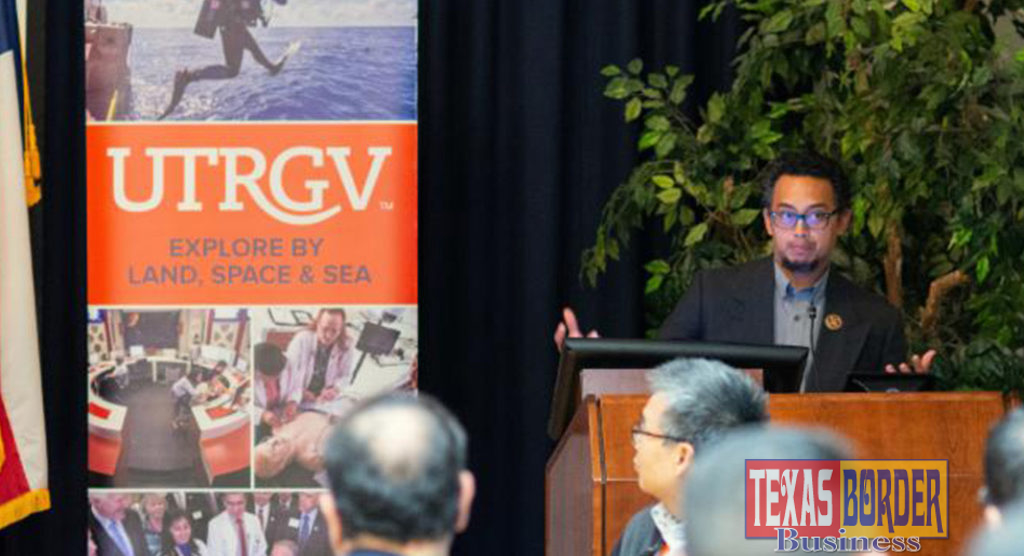
Texas Border Business
By Karen Villarreal
Rio Grande Valley, Texas – Congressional representatives and community leaders from ARISE and LUPE joined UTRGV faculty and students March 1, to kick off a $1.48M faculty-community partnership grant.
Funded by the National Science Foundation, the grant – “Building Capacity: Transforming Undergraduate Education in STEM Through Culturally Relevant Pedagogy and Community Engagement” – is intended to help faculty develop inclusive, culturally relevant teaching practices. It also is geared to help faculty implement effective community engagement and experiential learning in STEM.
Faculty then will develop new classes which will emphasize meaningful engagement in community-based STEM-related projects, as well as new mathematics and biology “gateway” courses for first-year/early-career students, offered in a bilingual modality.
By emphasizing the broader, societal relevance of STEM fields, these new courses are designed to help students develop a sense of belonging and commitment, which enhances student success in underrepresented STEM fields. Contributing to community projects is another way to foster that commitment through applied learning.
Dr. Alexis Racelis, associate dean of Community Engagement and Outreach for the College of Sciences, and the grant’s principal investigator, welcomed the group and introduced co-principals Dr. Francisco Guajardo, executive director of the B3 Institute; Dr. Angela Chapman, assistant professor; Cristina Trejo, assistant vice president for Community Engagement & Assessment; and Dr. Juan Salinas, program coordinator – NSF Improving Undergraduate STEM Education.
“Academia in sciences has had this reputation of disconnecting from everyone outside the university by not fostering a connection,” Racelis said. “But UTRGV does a unique job of recognizing that the destiny of our university and community are linked. Students and faculty need to build partnerships with our communities; that’s what this effort is for. This grant builds capacity in our students in these areas to meet their needs.”
Dr. Mohammed Farooqui, interim dean of the UTRGV College of Sciences, presented information including how the mission of partnering with the community to address local and global grand challenges may be carried out.
“Our goal is to have 25 percent of faculty involved in community engagement by 2020 and 100 percent of students involved in experiential learning,” he said.
Farooqui recognized Dr. Teresa Patricia Feria, recipient of the Community Engagement Faculty Excellence Award, for her contribution to connecting students and the community.
Feria introduced some of her students, giving them the opportunity to address the community leaders in attendance. Students also distributed “up-cycled” bird feeders and other items as a token of gratitude to attendees and as an example of how they are engaging in sustainable projects like finding innovative ways to repurpose single-use plastic products.
“We are excited to work with this community and want them to know we are family, and family supports each other no matter what,” said Mark Gohar, one of the students who will be working on projects in RGV colonias with Feria.
After the speakers, attendees participated in a workshop facilitated by the NSF Grant Leadership Team, and collaborators that covered goals and processes for the program. In addition to training and workshops, the grant team intends to collect data to measure the impact of the professional development activities and new courses.












